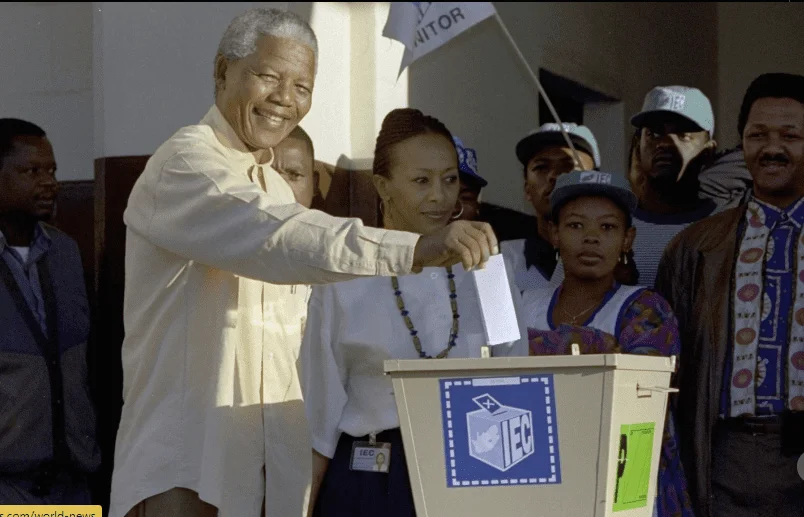Every year on April 27, South Africans celebrate “Freedom Day” to remember the historic 1994 election that marked the end of apartheid, the oppressive system of racial segregation. This year, they will commemorate the 30th anniversary of that election, which gave millions of Black South Africans the chance to vote for the first time in their lives.
That election was a turning point in the country’s history. The African National Congress (ANC), which had been banned for its opposition to apartheid, won by a large margin, and Nelson Mandela, who had spent 27 years in prison for his activism, became South Africa’s first Black president.
A Key Moment in History
The election in 1994 came after a series of major changes. In 1990, then-president F.W. de Klerk surprised the world by unbanning the ANC and other anti-apartheid groups. Just nine days later, Mandela was released from prison, setting in motion the events that would lead to a democratic South Africa.
Though the country was on edge due to political violence leading up to the election, the voting process, which spanned four days from April 26 to April 29, went smoothly. Millions of people turned out to cast their votes, and South Africa emerged as a fully democratic nation after being isolated for decades due to its apartheid policies.
A Historic Election
Nearly 20 million South Africans voted in the 1994 election, compared to just 3 million white voters in the last apartheid-era election in 1989. An iconic photograph taken during the election captured the long lines of Black South Africans patiently waiting to vote for the first time, symbolizing their determination to be heard.
After the ANC’s landslide victory, Mandela praised the people, saying, “It is you, the people, who are our true heroes.”
The End of Apartheid
The ANC’s victory meant the official end of apartheid. A new constitution was drafted, ensuring equal rights for all citizens, regardless of race, religion, or background. Apartheid, which had controlled every aspect of Black South Africans’ lives since 1948, was finally dismantled.
Under apartheid, Black people were restricted in every way—where they could live, work, and even whom they could marry. They weren’t allowed to vote or have a say in the country’s governance.
South Africa 30 Years Later
Today, South Africa’s president, Cyril Ramaphosa, who was a close ally of Mandela, will lead the 30th-anniversary celebrations in Pretoria. However, the country now faces significant challenges, including high unemployment and widespread poverty. While the ANC is credited with helping to end apartheid, it is no longer viewed with the same level of admiration as it once was.
In 2024, the unemployment rate is at a staggering 32%, with youth unemployment above 60%. Many Black South Africans still live in poor, underserved areas. The high level of inequality in the country remains one of its most pressing issues, and many feel the ANC has not done enough to improve living conditions for the majority of its people.
Looking Ahead to Another Election
The upcoming national election on May 29 could be another important moment in South Africa’s democracy. Opinion polls suggest that the ANC may lose its parliamentary majority for the first time since 1994. Although the ANC is expected to remain the largest party, it may have to form coalitions with smaller parties to stay in power.
As South Africans reflect on the hope and excitement of the 1994 election, many are now looking beyond the ANC for the prosperity and freedom that Mandela promised 30 years ago




















